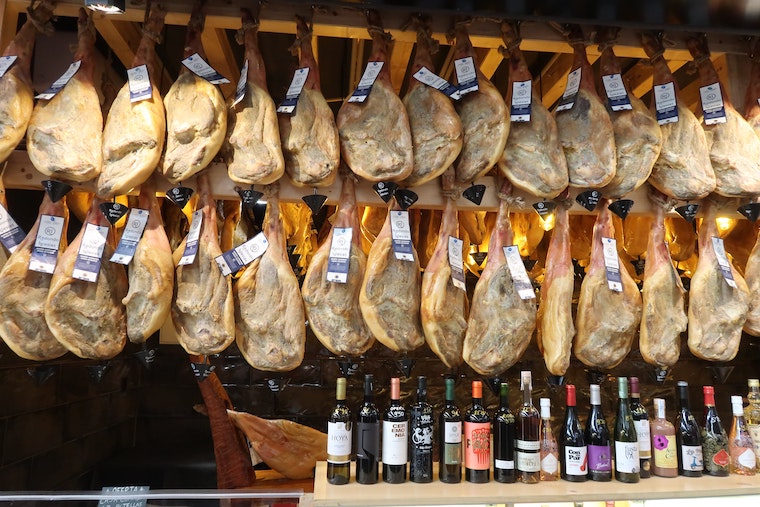16/02/2023
The climate crisis and, more specifically, rising temperatures and low rainfall threaten key ingredient of pigs’ diet – acorns from the dehesa oak forests
Click HERE to download the Weekly English Practice as a PDF.
Useful Vocabulary
prized: extremely highly valued
to imperil: to put s.t. at risk / in danger
acorn: the fruit of an oak tree
to revere: to feel deep respect or admiration for s.t.
upwards of: more than
to gorge on: to eat a large amount greedily
holm oak: an evergreen, southern European tree
damp: slightly wet
drought: a prolonged period of abnormally low rainfall, leading to a shortage of water
to rear (animals): to care for and help grow
weevil: a small beetle which infests food
to graze: to eat grass in a field
cattle: another word for cows
Listen to the audio and read the text
Spain’s prized jamón ibérico under threat
Spain’s prized jamón ibérico bellota is under threat from the climate crisis as rising temperatures and low rainfall imperil a key ingredient of the pigs’ diet – acorns. In a country where pigs are as populous as people, there are many varieties of ham, but none is so revered as jamón ibérico bellota, which retails at upwards of €100 (£88) a kilo.
It is produced exclusively from blackfoot pigs, which must spend the last month of their lives gorging on acorns (bellotas) in the dehesa, a type of oak forest peculiar to the west and north-west of Spain. The problem is that, as a result of unusually hot and dry summers, the oaks are producing fewer acorns. This, plus a drop in the market price, led to a 20% reduction in the jamón ibérico produced last year in Extremadura, one of only four small regions that enjoy the official denominación de origen.
Last year was the hottest on record in Spain and the third driest. Rainfall in Extremadura has fallen by about 35% over the past 50 years. “The dehesa is made up of holm oaks that are native to damp climates so it’s a relic of when the climate here was different from now,” said Francisco Espárrago, the president of Señorío de Montanera, which produces top quality jamón. “The trees struggle to survive the long, hot and dry summers we’re having now.”
Even if this summer is not as extreme as 2022, Espárrago is not optimistic. “I expect that this year, having survived the drought of last summer and a winter with little rain, will be the worst in the 40 years I’ve been working in the dehesa,” he said. Under the regulations, ham producers are allowed to import acorns from elsewhere but Espárrago is not keen on the idea.
“The main source is Morocco and Algeria, where of course they don’t rear pigs, but I worry that importing acorns may introduce new diseases as happened when we imported palm trees from Egypt,” he said. The red palm weevil was introduced into Spain via Egypt in 1993 and subsequently destroyed tens of thousands of palms.
The finest jamón is produced in some of Spain’s poorest regions and is a vital component of their local economies, accounting for thousands of jobs in areas that are among Europe’s unemployment black spots. “It’s not just pigs,” says Espárrago, who complains about the lack of funding to replant trees. “If the dehesa doesn’t survive, there will be nowhere to graze cattle either.”
Adapted from this article by ECP coach Darren ‘Kez’ Kurien
Let’s chat about that
- Do you like Spanish ham? Explain why in detail.
- What’s your favourite Spanish dish?
Describe it - What’s your favourite foreign dish?
Again, describe it to us. - How serious is climate change? Voice your opinions.
- Can climate change be stopped or reversed? Again, tell us what you think.
- Who is to blame for climate change? Is it us as individuals? Or is it big companies which pollute our environment? Or is it our governments’ for not acting sooner?

